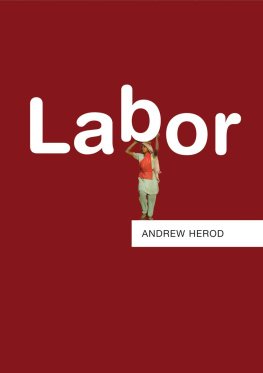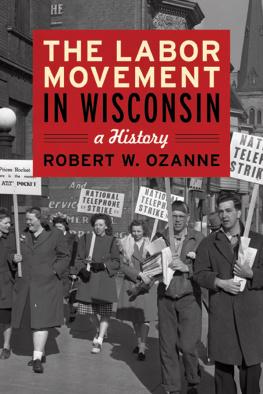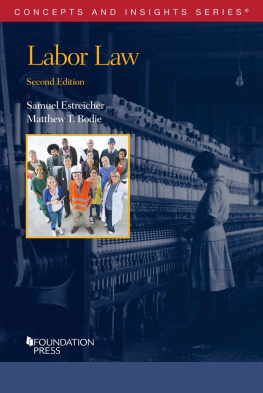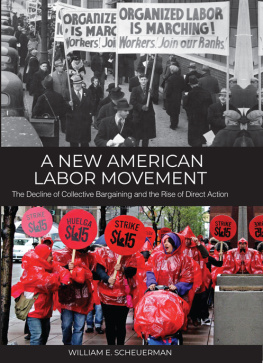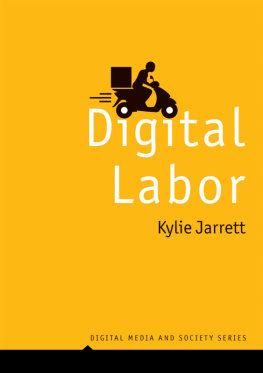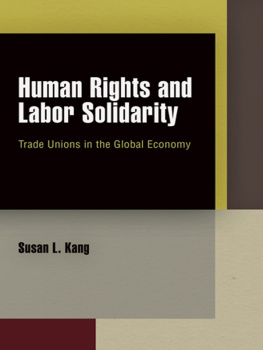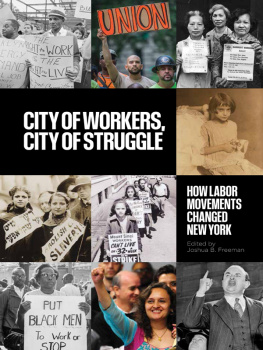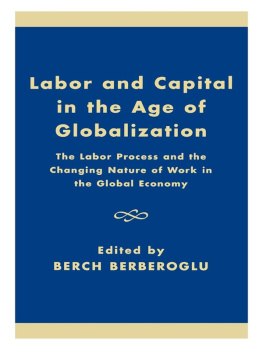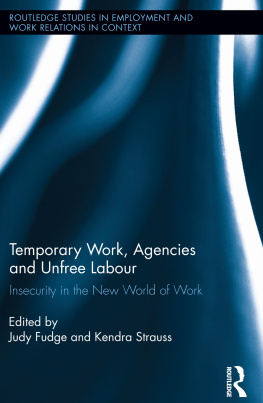Contents
Guide
Pages

Resources Series
Anthony Burke, Uranium
Peter Dauvergne & Jane Lister, Timber
Michael Nest, Coltan
Elizabeth R. DeSombre & J. Samuel Barkin, Fish
Jennifer Clapp, Food, 2nd edition
David Lewis Feldman, Water
Gavin Fridell, Coffee
Gavin Bridge & Philippe Le Billon, Oil, 2nd edition
Derek Hall, Land
Ben Richardson, Sugar
Ian Smillie, Diamonds
Adam Sneyd, Cotton
Bill Winders, Grains
Labor
ANDREW HEROD
polity
Copyright Andrew Herod 2018
The right of Andrew Herod to be identified as Author of this Work has been asserted in accordance with the UK Copyright, Designs and Patents Act 1988.
First published in 2018 by Polity Press
Polity Press
65 Bridge Street
Cambridge CB2 1UR, UK
Polity Press
101 Station Landing, Suite 300
Medford, MA 02155, USA
All rights reserved. Except for the quotation of short passages for the purpose of criticism and review, no part of this publication may be reproduced, stored in a retrieval system or transmitted, in any form or by any means, electronic, mechanical, photocopying, recording or otherwise, without the prior permission of the publisher.
ISBN-13: 978-1-5095-2412-9
A catalogue record for this book is available from the British Library.
Library of Congress Cataloging-in-Publication Data
Names: Herod, Andrew, 1964- author.
Title: Labor / Andrew Herod.
Description: Cambridge, UK ; Malden, MA : Polity Press, 2017. | Series: Resources | Includes bibliographical references and index.
Identifiers: LCCN 2017015282 (print) | LCCN 2017030878 (ebook) | ISBN 9781509524112 (Mobi) | ISBN 9781509524129 (Epub) | ISBN 9780745663869 (hardback) | ISBN 9780745663876 (pbk.)
Subjects: LCSH: Labor.
Classification: LCC HD4901 (ebook) | LCC HD4901 .H435 2017 (print) | DDC 331--dc23
LC record available at https://lccn.loc.gov/2017015282
The publisher has used its best endeavours to ensure that the URLs for external websites referred to in this book are correct and active at the time of going to press. However, the publisher has no responsibility for the websites and can make no guarantee that a site will remain live or that the content is or will remain appropriate.
Every effort has been made to trace all copyright holders, but if any have been inadvertently overlooked the publisher will be pleased to include any necessary credits in any subsequent reprint or edition.
For further information on Polity, visit our website: politybooks.com
Acknowledgments
I would like to thank several people who have helped me with preparing this book. First, Louise Knight, who approached me several years ago now to contribute to Politys Resources series. I would also like to thank Nekane Galdos for helping to shepherd the project along. My friend Bradon Ellem granted permission to use the map in . I would like to thank Adam Wrigley for help with some of the data collection. Adam participated in an innovative program at the University of Georgia in which high school seniors are paired with faculty members so that they can learn a little about how research is conducted. Adam did a sterling job locating some of the data used in the book. Thanks, also, to two anonymous reviewers for some helpful comments. Finally, I dedicate this book to my dad, John Clement Herod (19312013).
Introduction
Labor is the ultimate source of all wealth. Without the exertion of human labor, the worlds natural resources, like iron ore, oil, lumber, and land, cannot be used and neither can the services that make the modern world run be provided. This capacity to transform the planet around us through work is central to understanding the dynamics shaping contemporary economic, political, social, and biotic life. In thinking about labor as a resource, however, we must ponder not only labor itself but also the labor processes within which individuals are embroiled and which shape how they interact with one another as they refashion the natural world for human use. This is because the way in which working people cooperate (or not) with one another and with their employers changes how they themselves behave as a resource. Because they have the capability to contest and change the conditions under which they are employed, then, it is important to think of workers both as objects of analysis and also as sentient subjects who can alter their own situations through proactively thought-out economic and political actions. This capacity makes labor fundamentally different from any other resource.
In this book I provide a broad-ranging look at labor as a resource. In the first chapter I outline how labors sentience makes it a resource unlike others. In so doing, I consider how labor is deeply geographically embedded in particular places but is also distributed unevenly across the economic landscape. This spatial aspect of labors nature is more than simply an interesting facet of working peoples existence. Rather, it is a deeply constitutive element of their lives, for much of their behavior is shaped by their need to come to terms with the differentially developed geography of the contemporary world and how they are tied to specific places. This has signal implications for labors behavior as a resource. For instance, many workers are trapped in particular communities for a variety of reasons an inability to sell their homes so that they can move elsewhere, a psychological attachment to particular places that hold important resonances for them, or the fact that they lack the legal status to move elsewhere. This can reduce their ability to negotiate better terms of employment because they have few options but to take whatever wages are being offered locally. On the other hand, for those workers who can overcome this geographical fixity, the ability to migrate elsewhere may provide significant opportunities for bettering their lives. At the same time, though, it may be fraught with challenges they may not be welcome in the new communities in which they settle, the promises of a better life may not materialize, or they may have to live in the economic shadows because they do not have the correct legal documents to work out in the open. How they negotiate the tensions between staying in one place and seeking to move elsewhere, then, is an important component of their lives.
Having explored several aspects of what it means to think about labor as a resource, how it is different from other resources, and how labors geographical constitution affects how it behaves, I look in at labor as a global resource. In particular, I detail some of the historical migrations which have led to the current distribution of people across the planet, together with how in situ demographic processes like differential rates of population growth in various parts of the globe, have resulted in the present distribution of working people across the planet. For instance, the booming oil economies of the Persian Gulf are reliant upon the labor of millions of migrant workers coming from places like India, Pakistan, and Bangladesh, while South Africas economy sucks in young men from across the continent to work in the gold mines of the Witwatersrand. Likewise, the migration of hundreds of millions of peasants from the countryside to the nations industrial zones has helped make Chinas economy the worlds second largest. Concurrently, the global population explosion that has occurred since the mid-twentieth century has fundamentally reconfigured labors distribution across the planet since 1950, world population has tripled in size (from about 2.5 billion to nearly 7.5 billion), with the bulk of this growth occurring in the Global South. At the same time, however, regional phenomena like the AIDS crisis in Africa are having tremendous impacts upon labor markets and what this means for economic development.

